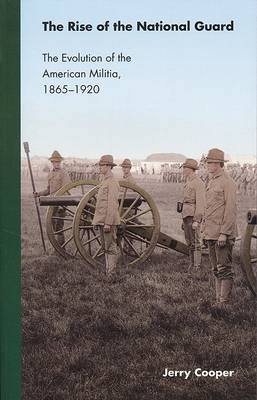Studies in War, Society, and the Military
1 total work
From the beginnings of the American republic the concept of a citizen soldiery, organized through militias, has undergirded American military philosophy. This nation fought the Revolution, the War of 1812, and the Mexican War, and began the Civil War, relying on volunteer militias and only a skeletal professional military force. The Civil War demonstrated the need to adapt state militias to the requirements of modern war, yet the United States retained its original philosophy in what became the National Guard. The Rise of the National Guard describes in thorough detail the evolution of the state militia system to a more federally controlled National Guard during the crucial years of development. The subject is important because the 'citizen soldier' and 'militia-national guard' tradition is one of the two pillars on which American military policy was built; a professional, regular military force was the other. Jerry Cooper's detailed research, unique examination of the experience of individual states, and careful analysis will make this the standard treatment of the subject. Jerry Cooper is a professor of history at the University of Missouri-St. Louis.
He is the author of The Army and Civil Disorder: Federal Military Intervention in Labor Disputes, 1877-1900 and The Militia and the National Guard in America since Colonial Times: A Research Guide.
He is the author of The Army and Civil Disorder: Federal Military Intervention in Labor Disputes, 1877-1900 and The Militia and the National Guard in America since Colonial Times: A Research Guide.
